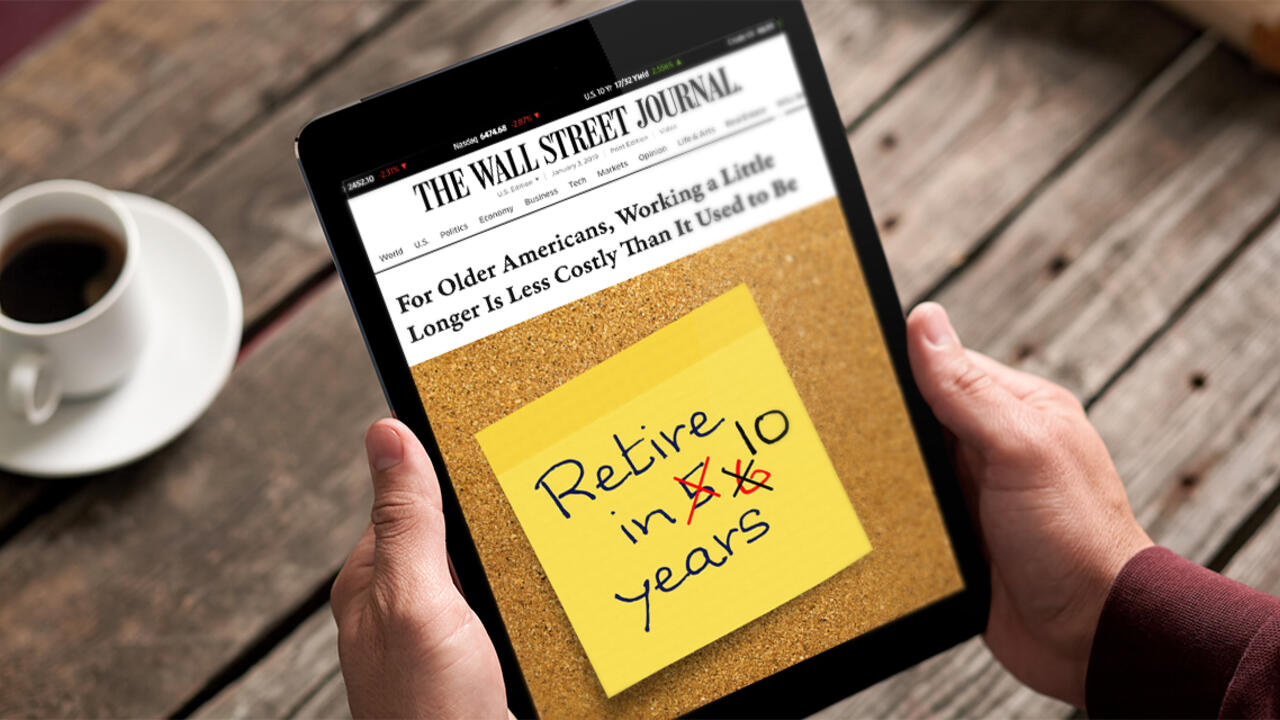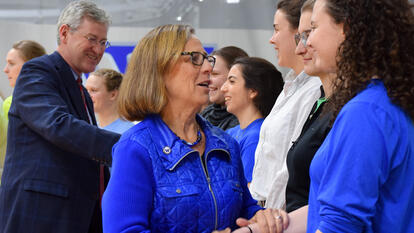Wellesley Professor’s Research Featured in “Wall Street Journal” Article

A December 19 Wall Street Journal article mentions the work of Wellesley College economics professor Courtney Coile, whose research shows that for older Americans, working longer can be less costly than it was 30 years ago. Her paper “The Evolution of Retirement Incentives in the U.S.” was recently published by the National Bureau of Economic Research (NBER).
Many older Americans are continuing to work later in life for a variety of reasons, according to the Journal—they are living longer and healthier lives, they are less prepared for retirement, and in some cases they are reacting to what the article calls an underappreciated factor: Working longer has become less expensive. In the past, older workers faced tax penalties, lower Social Security benefits, and a potential decline in private pension income.
“Research confirms the steep drop in work penalties for older workers,” the article says. “[T]he implicit tax on workers aged 65 to 69 has plummeted by more [than] half since 1980. For example, the implicit tax for a 67-year-old worker fell from 32 percent in 1980 to 10 percent today. Coile found similar declines for other workers in their late 60s, driven mainly by gradual changes in Social Security rules.” (“Implicit tax” refers to the loss of lifetime Social Security wealth that may result from additional work if the increase in the benefit from delaying claiming does not fully compensate for the year of lost benefits and extra payroll taxes paid.)
In her NBER paper, Coile writes that “there is suggestive evidence that changes in retirement incentives may be associated with changes in employment, although further research is needed to more definitively establish this relationship.” She mentions several reasons Americans are working longer in general, including the shift from traditional defined benefit pension plans to 401(k) plans, which eliminated the retirement incentive workers used to face when they reached traditional retirement age, and the fact that many of today’s older workers are better educated than in the past, and people with more education tend to retire later.
Coile also found that labor force participation rates have risen nearly in parallel for older men and older women over the past two decades. For men, this increase comes after a century of declining participation—in the late 1800s, more than three-quarters of men over age 65 were working—indicating that only in the last century has retirement emerged as a distinct and significant phase of life.
By contrast, women’s participation in the workforce at older ages was historically very low, but has risen in recent years as women who invested more in their education and careers when they were younger reach older ages and continue to work. Coile notes that an older male worker is now more likely to have a wife who works, which may lead him to delay his retirement until she is ready to retire, because married couples often prefer to retire together.
Younger workers, Coile says, should “plan to work longer, but this is not necessarily a bad thing. Knowing that you have a long career ahead of you may make it easier to take time out earlier in life to invest in education or family, and recent research even suggests that working longer is good for your health.”



